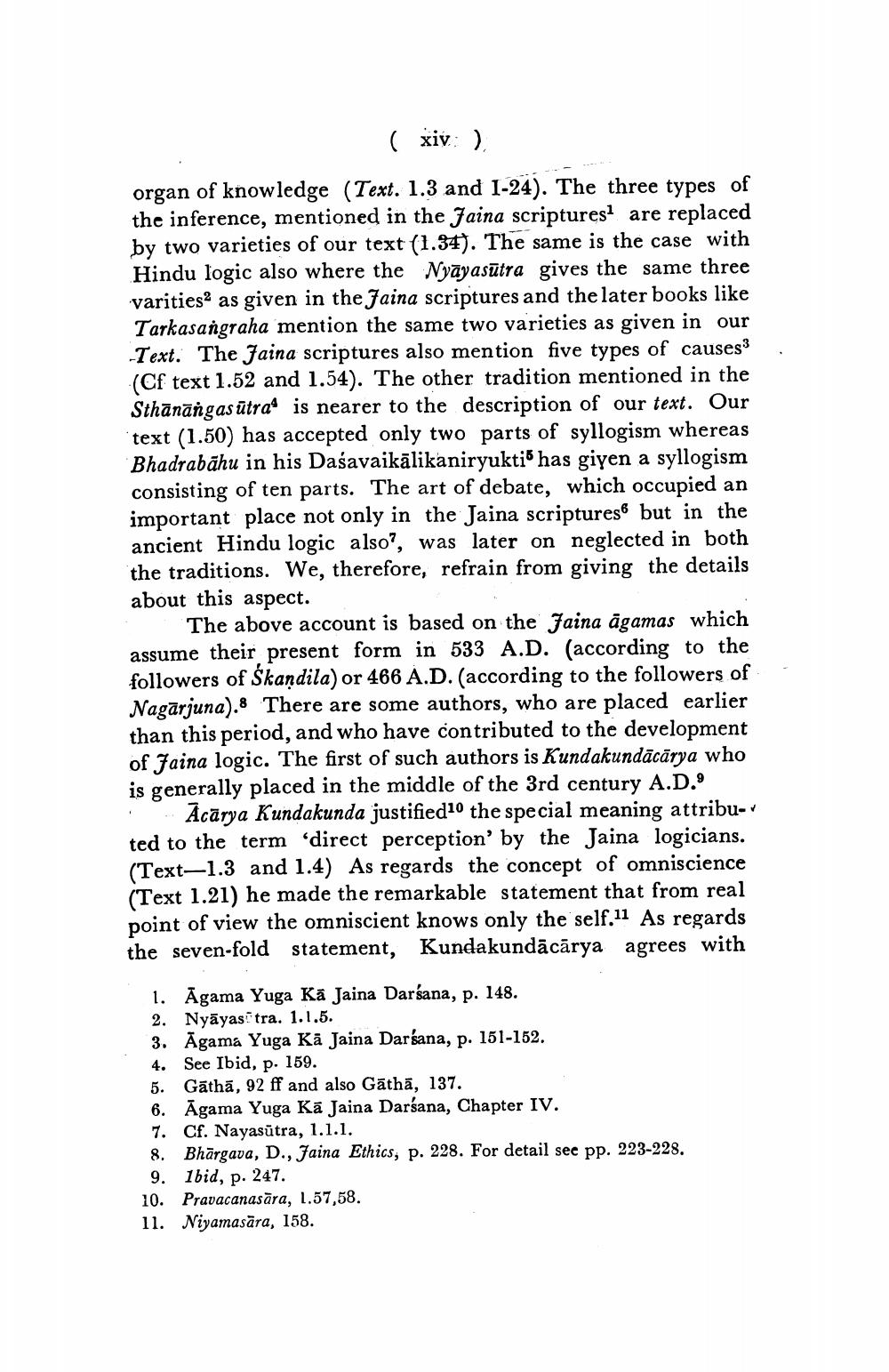________________
(xiv)
organ of knowledge (Text. 1.3 and 1-24). The three types of the inference, mentioned in the Jaina scriptures are replaced by two varieties of our text (1.34). The same is the case with Hindu logic also where the Nyayasūtra gives the same three varities as given in the Jaina scriptures and the later books like Tarkasangraha mention the same two varieties as given in our Text. The Jaina scriptures also mention five types of causes3 (Cf text 1.52 and 1.54). The other tradition mentioned in the Sthānāngas ātra" is nearer to the description of our text. Our text (1.50) has accepted only two parts of syllogism whereas Bhadrabāhu in his Daśavaikālikaniryukti has given a syllogism consisting of ten parts. The art of debate, which occupied an important place not only in the Jaina scriptures6 but in the ancient Hindu logic also?, was later on neglected in both the traditions. We, therefore, refrain from giving the details about this aspect.
The above account is based on the Jaina ägamas which assume their present form in 533 A.D. (according to the followers of Škandila) or 466 A.D. (according to the followers of Nagārjuna).8 There are some authors, who are placed earlier than this period, and who have contributed to the development of Jaina logic. The first of such authors is Kundakundācārya who is generally placed in the middle of the 3rd century A.D.' : Ācārya Kundakunda justified 10 the special meaning attribu-v ted to the term 'direct perception' by the Jaina logicians. (Text-1.3 and 1.4) As regards the concept of omniscience (Text 1.21) he made the remarkable statement that from real point of view the omniscient knows only the self.11 As regards the seven-fold statement, Kundakundācārya agrees with
1. Agama Yuga Kā Jaina Darśana, p. 148. 2. Nyāyas: tra. 1.1.5. 3. Āgama Yuga Kā Jaina Darśana, p. 151-152. 4. See Ibid, p. 159. 5. Gāthā, 92 ff and also Gāthā, 137. 6. Agama Yuga Kā Jaina Darsana, Chapter IV. 7. Cf. Nayasūtra, 1.1.1. 8. Bhārgava, D., Jaina Ethics; p. 228. For detail sec pp. 223-228. 9. lbid, p. 247. 10. Pravacanasāra, 1.57,58. 11. Niyamasāra, 158.




